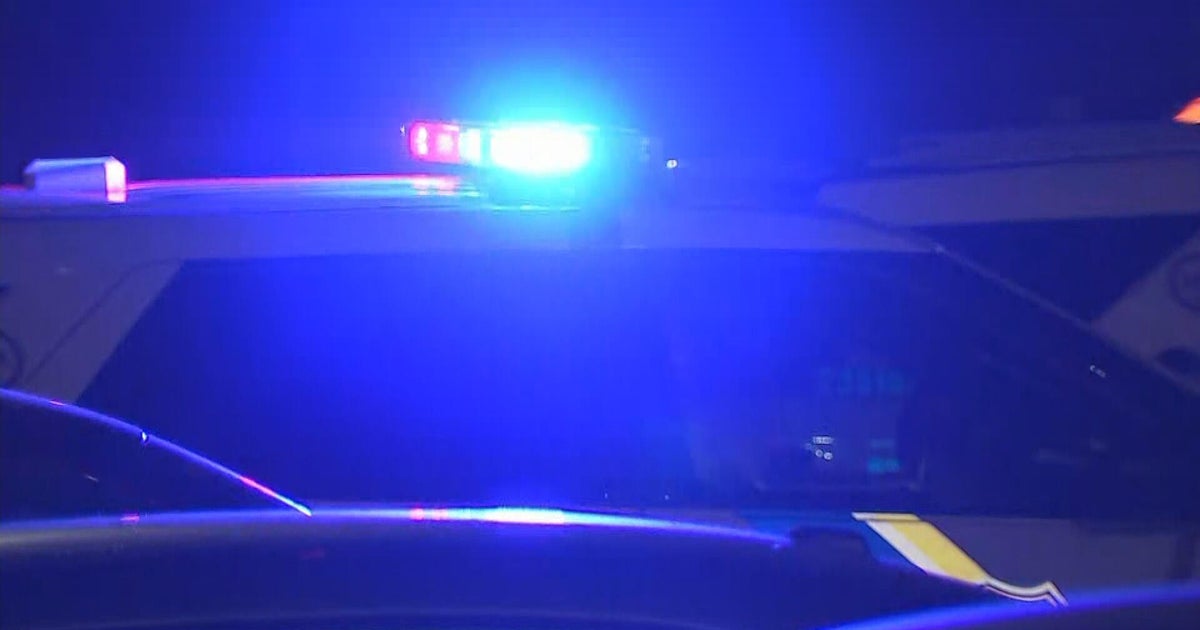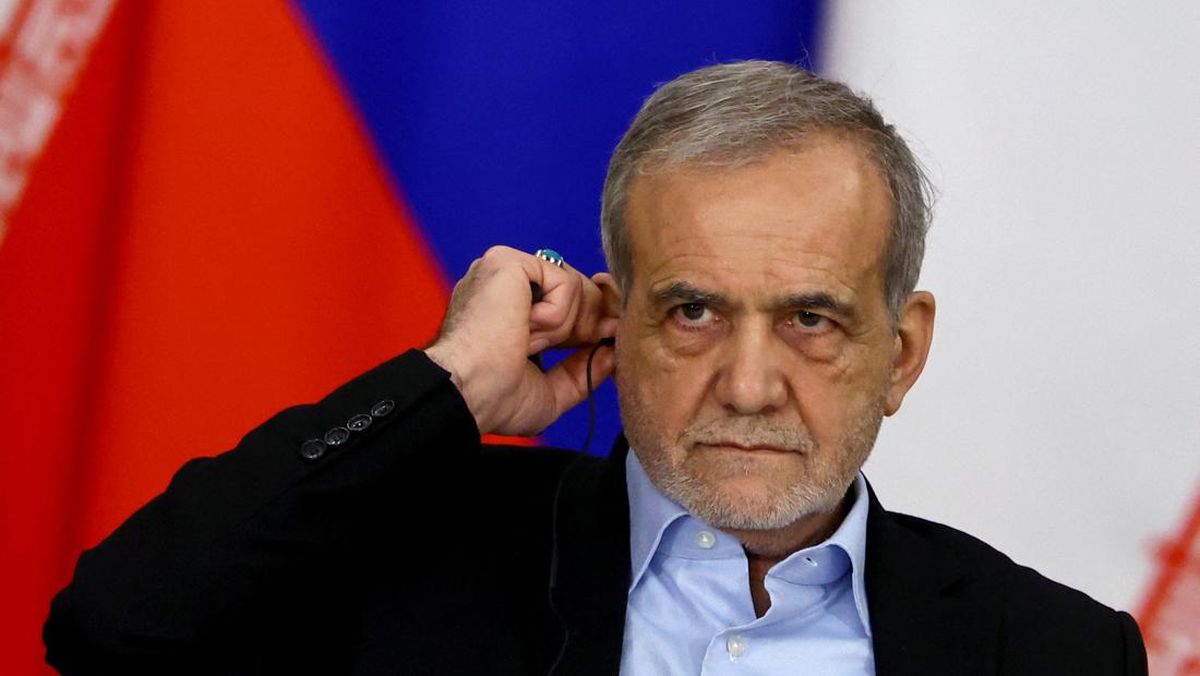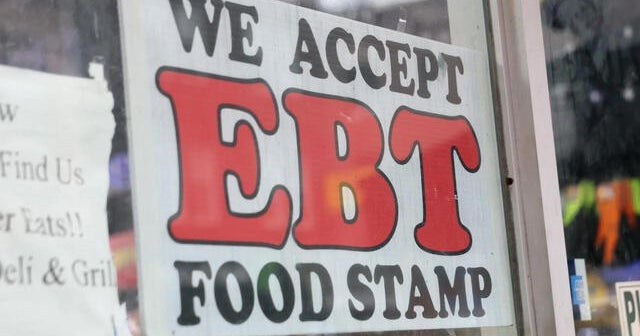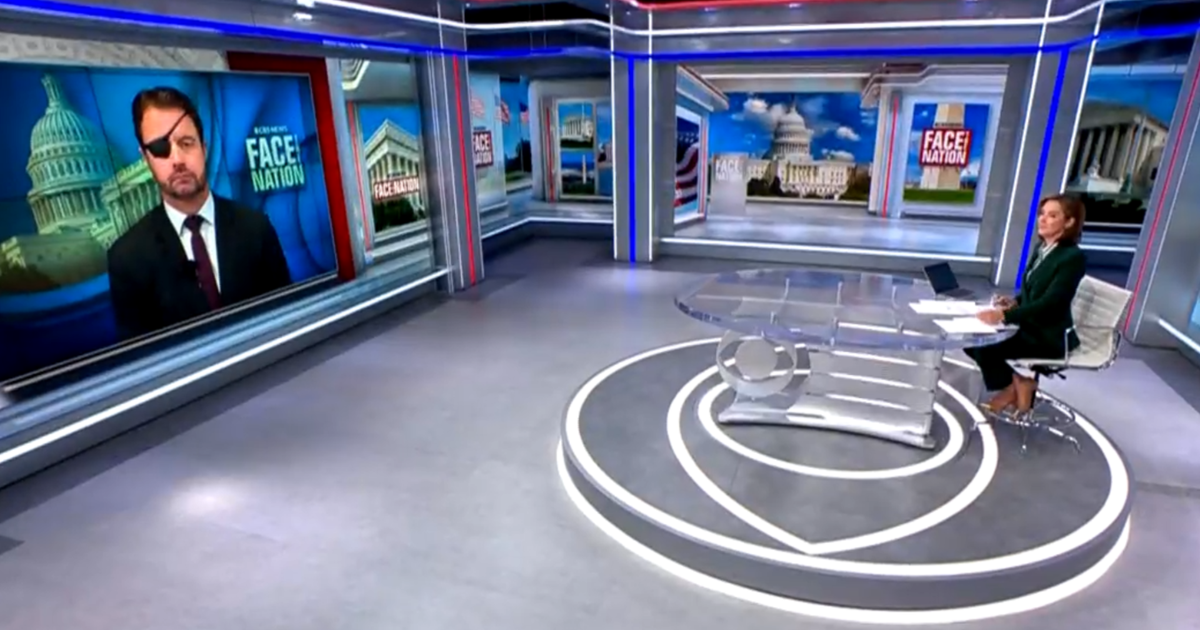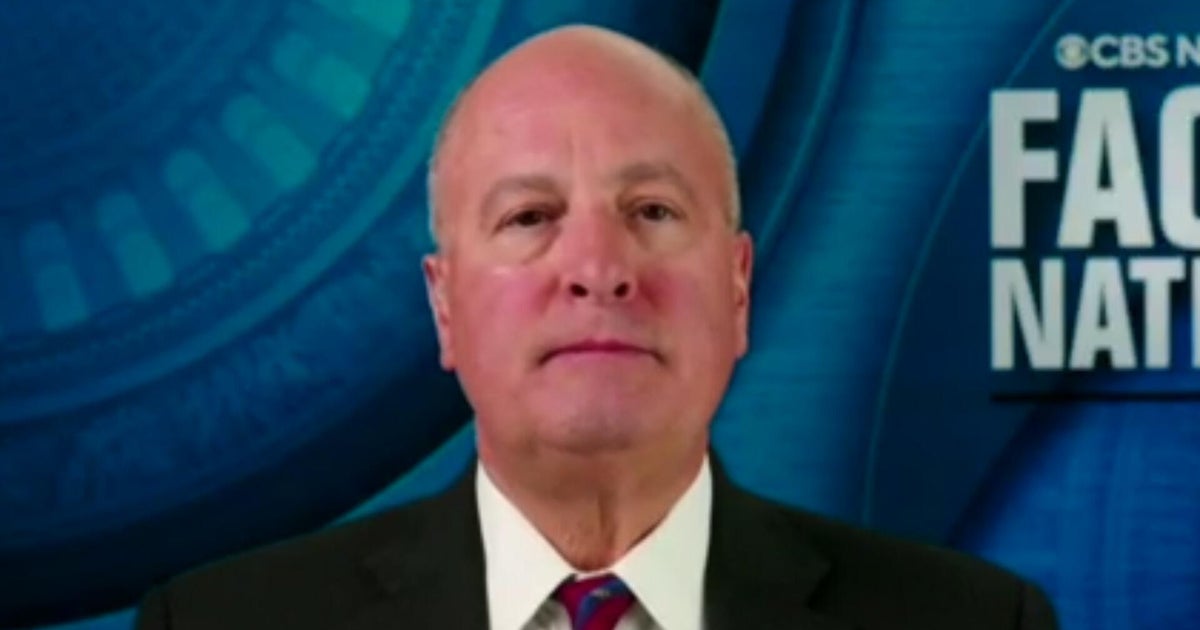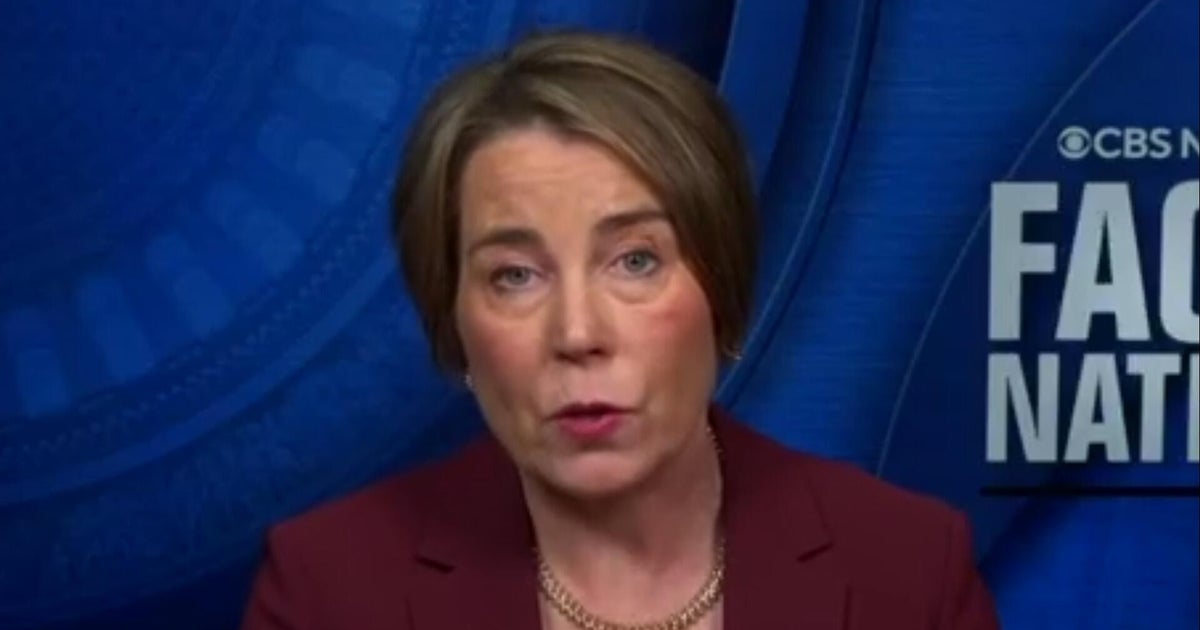The following is the transcript of the interview with Transportation Secretary Sean Duffy that aired on "Face the Nation with Margaret Brennan" on Nov. 2, 2025.
MARGARET BRENNAN: We go now to the Secretary of Transportation, Sean Duffy, who joins us this morning from Far Hills, New Jersey. Welcome to Face The Nation.
TRANSPORTATION SECRETARY SEAN DUFFY: Hey, thanks, Margaret, good to be with you.
MARGARET BRENNAN: So our CBS polling shows that there is real concern among Americans regarding the effect of the shutdown on all transportation. Should Americans also have safety concerns at this point?
SEC. DUFFY: I think that's a great question. We work overtime to make sure the system is safe. And we will slow traffic down, you'll see delays, we'll have flights canceled to make sure the system is safe. But we have to be honest, when we have controllers, where we have shortages and towers and TRACONs doing two jobs, does it add more risk into the system? Sure, it does. But again, we're always managing that. Again, we don't- we don't want crashes, we want people to go safely, and so we will slow and stop traffic if we don't think we can manage it in a way that keeps people safe as they go from point A to point B.
MARGARET BRENNAN: Well, I did see that the FAA said, up in New York, 80% of air traffic controllers were absent from New York area airports, and that same day, there was a near miss at LaGuardia Airport. One United plane clipped another one. Was that pilot error? Or was that linked to some kind of shortage?
SEC. DUFFY: Well, you mentioned the shortages of air traffic controllers in the New York airspace. We had a couple days ago, three hour delays throughout New York. And again, I haven't got the readout yet on whether that was pilot error. And usually, when these planes are- are traveling very close to each other, it's their job to stay away from one another. That's not controllers, it's usually pilot error. But again, I'll have to look and see what directive was given by the air traffic controllers. But it's normally the pilot's responsibility to stay away from aircraft on the tarmac.
MARGARET BRENNAN: So if this shutdown continues, how- when does it become an emergency in terms of passenger safety and the safety of those who are trying to, for example, get home for Thanksgiving in a few weeks.
SEC. DUFFY: Well, does it become a flight emergency, a safety issue? No, we will stop traffic. So we're not going to let that happen. I think the real consequence is, what kind of rolling delays do you have throughout the system, right? We've seen problems at LA, in Dallas, in DC, Boston, Atlanta. And so I think it's only going to get worse. We have controllers who, some of them are new controllers. We have trainee controllers who are very helpful in the tower. They don't make a lot of money, and they're now confronted, they haven't had a paycheck for over a month. They're confronted with a decision: do I put food on my kids' table, do I put gas in the car, do I pay my rent or do I go to work and not get paid? They're making decisions. I've encouraged them all to come to work. I want them to come to work, but they're making life decisions that they shouldn't have to make. Let's open the government up. Let's pay these people, these young controllers. Margaret, it's really important, I think you've covered this, we don't have the best equipment in our towers and centers for air traffic control. But we have the safest airspace, we have the most efficient airspace because we have the best controllers in the world that work our skies and keep our people safe. They deserve a paycheck.
MARGARET BRENNAN: Well, given that they are so essential, is there any way the administration can find a pot of money like seems to be getting found for others, like the military, to pay controllers so they can show up to work? Why isn't the administration able to do that?
SEC. DUFFY: Yeah, well, I think that's a great question. So we have done all we can. President Trump has done all he can to minimize the pain of the shutdown on the American people. Again, you remember under Barack Obama's shutdown, he was trying to gate off open air monuments in Washington, DC, and were shutting down parks just walking paths. President Trump has tried to make it less painful on the American people. So we're looking for pots of money to pay essential workers, but there's really strict rules around what money we can use and how we can use it, and we have to follow the law. And so we were able to fund a central air service, service to more rural communities. We've kept our academy up and running thus far. We don't have a ton of time, a couple more weeks of that funding. But I don't have the resources to do that, and the simple answer is, vote to open the government, negotiate your differences. That's fine, that's fair. But again, these people should be paid. And to say that it's Donald Trump's fault, to say he has to find money, when Democrats have said there's no money for you because we've shut the government down, I mean, that's a contorted analysis. And Democrats are trying to do that, and I don't think it really works. Give the money and we'll pay the controllers.
MARGARET BRENNAN: Yeah, well, I saw reports that air traffic controllers only received partial pay mid-October, and this past week they missed a paycheck altogether. So practically speaking, for those who are in these jobs, would you advise them to pick up part time work elsewhere?
SEC. DUFFY: No, I'm clearly asking them, come to work. It is your job to come to work, and eventually you will be paid. But as I've traveled around the country and talked to air traffic controllers, they've told me that a lot of them can navigate missing one paycheck. None of them can manage missing two paychecks. And they're like every American family, everyone watching your show today as they think about their own finances, how many paychecks can they miss before it becomes real stress, real strife in their life? And so they're- at the- next week, they're going to get a notice of what their next paycheck is going to be. And if the government doesn't open, the notice will be another big fat zero, and you're going to see more of them probably make the decisions of funding their families, putting food on their table, gas in their cars, versus coming into work. That's not what I want, but I'm a realist as well, Margaret, these are the decisions of life and survival that these controllers have to make. By the way, it's the technicians, also. We have old equipment. We have technicians that work in the towers that keep the equipment operational. They're not getting paid. I have train inspectors who are working to keep our trains running and running safely. They're working without pay. I have pipeline inspectors, same thing. Across the system. We have a number of people who are working without pay. We talk about the air traffic controllers, but I have thousands of employees who are showing up, doing the work and trying to keep this system safe for the American people all the while they don't get paid to do it.
MARGARET BRENNAN: Understood. So you said back on Fox Business on October 9 that "I can't have people not showing up for work and that they may be let go." There's a shortage of 4,000 controllers already. You're not firing people, are you? You can't afford to.
SEC. DUFFY: No, so when- we're 2-3,000 controllers short, but that's a huge number. And you make an interesting point, because I've tried to surge air traffic controllers into the system through our academy. Margaret, we're up 20% of controllers through the academy this year alone. It takes them about a year to two to get certified in a tower, but this shutdown is impacting my pipeline of controllers. And so as- when everyone forgets about air traffic control and the shutdown, I'm going to deal with the consequences of, again, delivering for the American people and getting more controllers in the towers, not less. And you bring up a good point. We're already stressed in that we don't have enough controllers in our system, and this shutdown, when we have staffing triggers where they're not coming in because they're funding their families and food on their tables, that makes it more difficult because we're already short long. Long term consequences--
MARGARET BRENNAN: So you're not going to fire them?
SEC. DUFFY: I don't plan on firing control. No, listen, I have, no, I- again when they're making decisions to feed their families, I'm not going to fire air traffic controllers. I have, I have loved them and supported them as they're trying to go through this process and it's challenging for them. They need support, they need money, they need a paycheck. They don't need to be fired.
MARGARET BRENNAN: All right. Secretary Duffy, thank you for your time this morning. We'll be right back.

